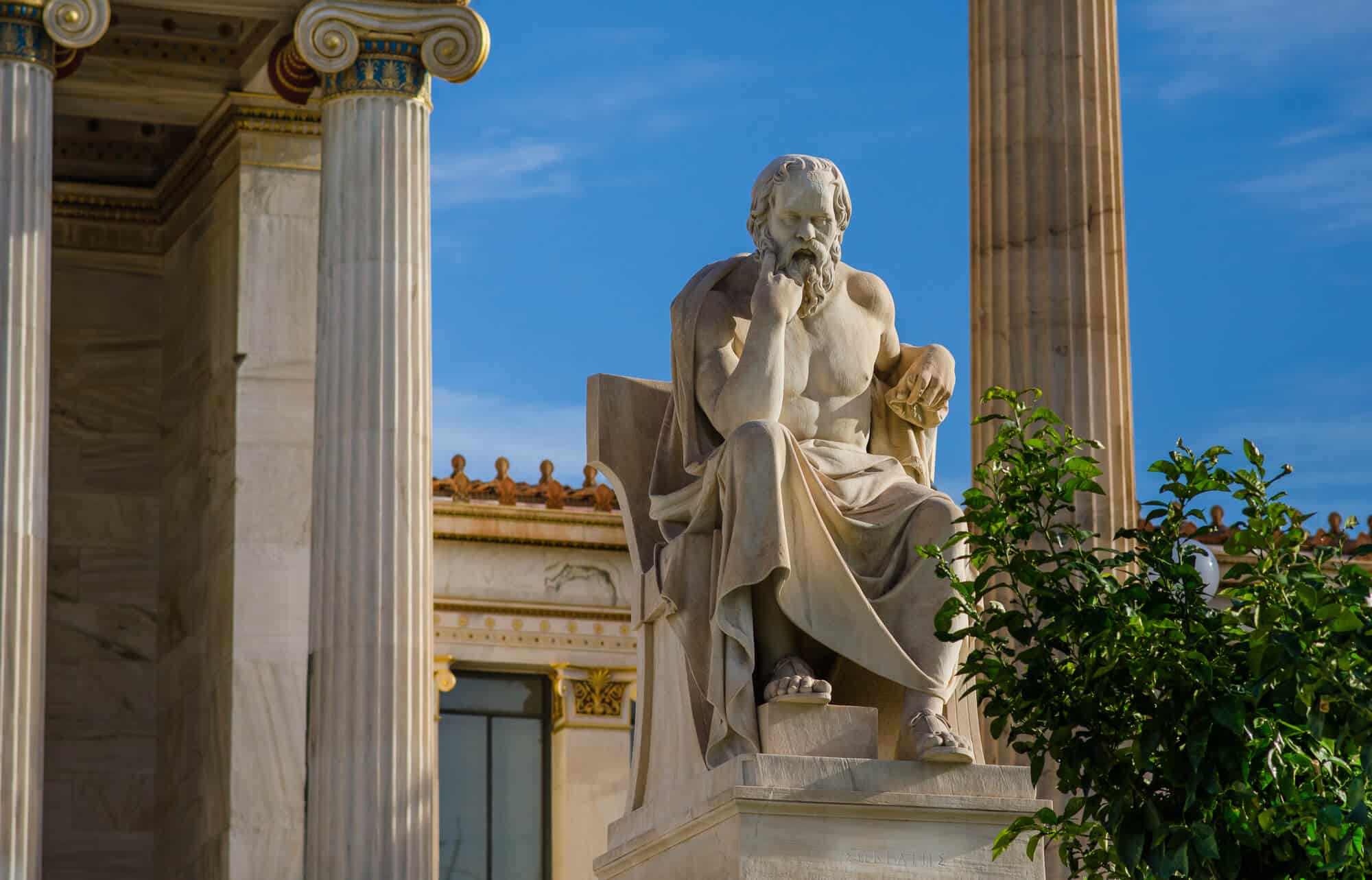Many of the students at Bar-Ilan University were drafted into reserve service in the "Iron Swords" war. Some of them, studying in the Faculty of Humanities, recalled the historical heroes who inspired them, and helped them in dealing with the complex challenges

Many of the students at Bar-Ilan University were drafted into reserve service in the "Iron Swords" war. Some of them, the learners in the Faculty of Humanities, remembered the historical heroes who inspired them, and helped them in dealing with the complex challenges.
Eliran Spiegelman, a master's degree student talks about the lessons he learned from the time of Themistocles
During the lifetime of Themistocles, Greece faced many difficulties: Persia invaded, conquered and subdued the Greek polis one after the other and reached the gates of Athens. Themistocles looks this trouble soberly in the eye and orders the Athenians to destroy their wall and use the materials as raw material for ships. He goes out to the open sea, the Persians reach the abandoned Athens and destroy it to the ground. The Athenians, from their ruin and distress, manage to go to war at sea against the Persians and win, i.e. expel the Persians from Greece. Like the Greeks we received a heavy opening blow from Mao and we are looking for the person or the way we will all unite against the enemy and win, so that future generations can live better.
Noam Caesar, PhD student, talks about the heroism of Julius Caesar
One of the most prominent figures from antiquity that comes to mind when talking about heroes, is Gaius Julius Caesar. During his campaign in the region of Gaul, he reached a city called Alesia, where 80 thousand of his enemies were entrenched. He was at a numerical disadvantage, decided to besiege the city and created a 16 kilometer long siege around it. that a cavalry force managed to escape from the city at night and call Gauls further away for reinforcements. Caesar faced more enemy forces, and instead of retreating and surrendering, he continued the siege of the city and built a line of fortifications behind him. When the Gaelic reinforcements arrived, he fought back and forth, including defenses and attacks. He overwhelmed the city, took the commander prisoner and defeated the Gallic uprising. The question that accompanied Caesar is also relevant to Israel in the war, what do you do in extreme situations, when a situation that seems bad, gets worse. I learn from him that even when the adversity is great, one should not give up but try even harder, and win.
Israel Algarbali from the Department of Information Sciences Talks about the heroism of Paris, son of the king of Troy
When Paris, the son of the king of Troy was born, a prophet told his parents that their son was going to destroy Troy. Instead of running away, they chose to fight. The message to learn from this is that every time we run away and don't face it, it will probably meet us later. In another case, Paris kidnaps the wife of the king of Sparta, and this leads to war. Also from this it can be learned that every action has consequences that cannot always be anticipated.
Another lesson that Paris teaches us occurs when he hits his enemy with the Achilles heel, and it reminds a bit of King David taking down Goliath. Through trickery and ingenuity, you can beat physical strength more than once.
Liron Erosi talks about the connection between Socrates and fake news
In the parable of the cave, Plato describes Socrates as someone who comes out of the cave, sees the truth and returns to the prisoners, who refuse to hear the truth and even want to kill him. Socrates went on trial in Athens and was executed with poison. The night before, his good friend Crito wanted to release him, but Socrates refused. This proves that he was willing to die for his truth. In my opinion, this relates to the fact that since the events of October 7, the Internet is full of false information and the truth is difficult to discover.
Neil Barr Ph.D in the history department Talks about Hector of Troy and humanity in times of war
Before Hector went into battle, and after arming himself, he said goodbye to his family: he kisses his wife, kneels down to kiss his toddler son and then something strange happens, because his son starts crying and doesn't recognize his father with the helmet and the weapon. Hector, in response, takes off his helmet, and in a split second he transforms from Hector the fearsome hero to Hector the father, and it really touches me, especially as a father.
In another case, when he meets Achilles Hector does not fight him but runs away in fear. It is very uncharacteristic of the heroes we are used to and very human, because even heroes are afraid. I think it speaks to every person who goes to the front, the recognition and understanding that it's scary and not easy... It's worth remembering this both in battle and on the home front, we're human and it's okay to be afraid and to be human, and the most important thing is that we take care of ourselves.
Daniel Altman, talks about the way to overcome difficulties according to Odysseus
Odysseus interests me in his willingness to continue and overcome all difficulties. His determination and perseverance speak to me. He is not a classical Greek hero endowed with great power, but rather with sophistication and cunning, and he is a character who is very loyal to himself. In these crazy days that Israel is in, I feel that determination, perseverance and also cunning, can help save us.
